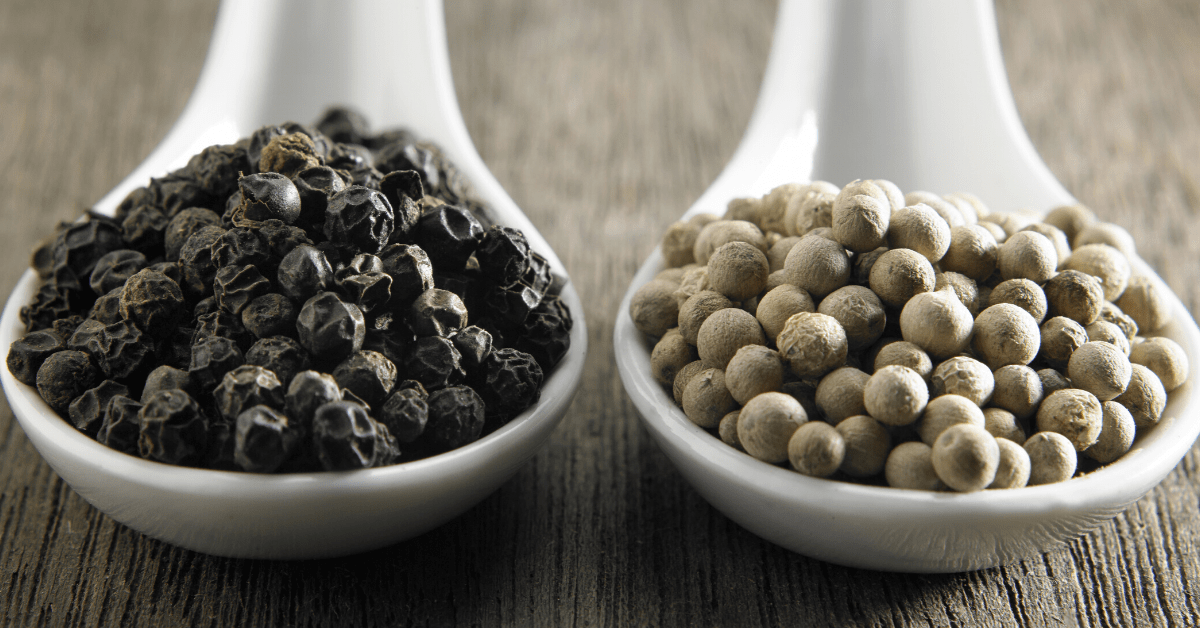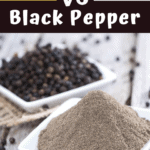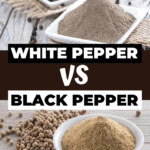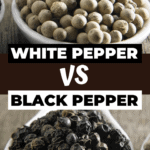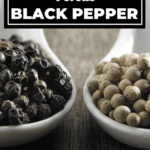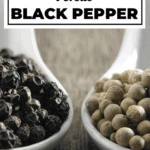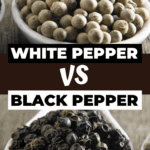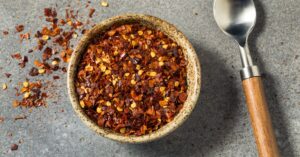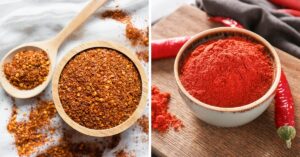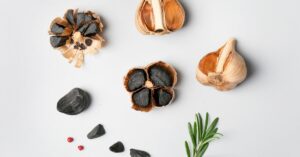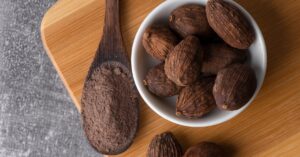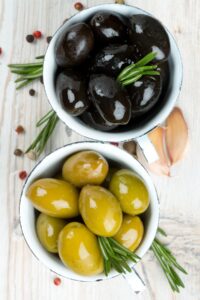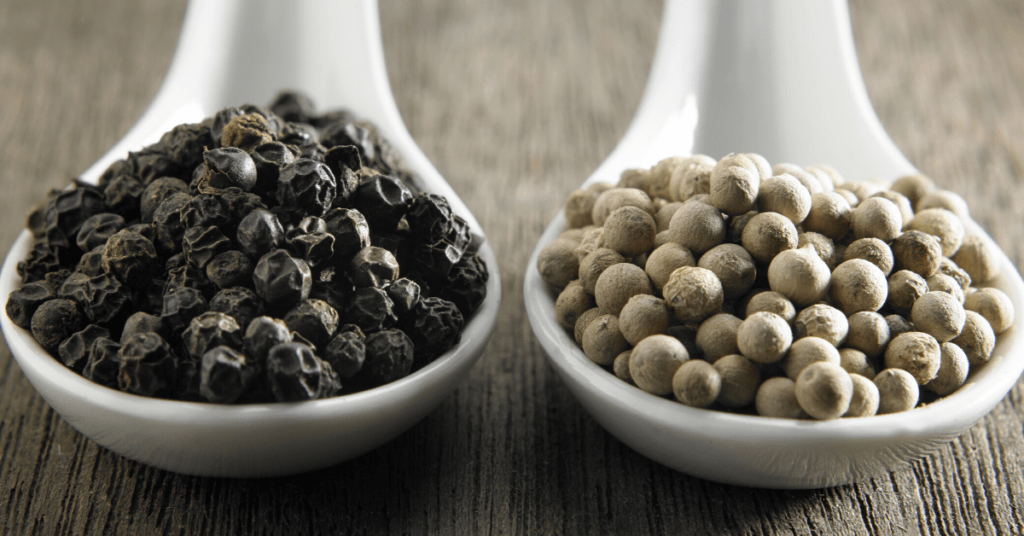
Pepper is a staple in any spice rack and there probably isn’t a day that I don’t use it! Its sharp, spicy, and earthy aroma alone is definitely a must for many of the dishes that come out of our kitchens.
But did you know there are different kinds of pepper? Yes! Today we’ll be talking about two of the most common kinds: white pepper and black pepper.
There’s much to learn about this humble, everyday spice so if you want to know their main differences, their distinct flavors, what they’re used for, the best ways to increase their shelf-life and more, then keep on reading!
What’s the Main Difference Between White Pepper and Black Pepper?
The first thing you’ll notice when you put white pepper and black pepper side by side is their appearance and color. But what causes this distinction?
Both peppers are made from the same plant: piper nigrum, specifically its berries which are more commonly known as peppercorn. Both of them start off green in color but the main difference between white pepper and black pepper begins in the way they are processed.
Black pepper, the more common and cheaper option between the two, is made from unripe, but almost ripe, berries. Immediately after picking, they are sun dried for six to eight days. This is what makes its skin black in color, giving it a strong, complex flavor.
White pepper on the other hand comes from fully ripe berries. Once they are harvested, they are soaked in water for as long as ten to twelve days. This softens and eventually removes the outer layer of the peppercorn.
It can also be placed in a continuous flow of water for a more thorough removal of the skin. This process of soaking and fermenting creates a cleaner, whiter pepper.
Which One is Spicier: White Pepper or Black Pepper?
Even though the two are made from the same plant, the way they are processed gives each of them a distinct flavor.
In terms of spiciness, white pepper tends to have more heat than black pepper. But that doesn’t mean the popular black pepper is at all lacking in flavor!
Culinary experts all agree that even though it is generally considered less spicy than white pepper, black pepper has a stronger and more complex flavor.
This is because its blackened outer layer, which was dried and preserved during its production, contains compounds that add to its flavor, including hints of earthiness and fruitiness.
Can You Substitute One for the Other?
You might be wondering if you can use black pepper in place of white pepper and vice versa. In some cases, you definitely can. Here are some things to keep in mind.
Black pepper is the one most commonly used between the two and generally, white pepper is used in dishes where you don’t want any visible dark specks. Most Asian cuisines such as soups and sauces are seasoned with white pepper.
When substituting one pepper for the other, it’s important to consider the amount that needs to be used. If your recipe calls for a small amount of pepper, you may substitute one black pepper for white pepper and vice versa.
This will not have a noticeable effect on your dish and the only difference will be in how it looks (without dark specks).
However, if your recipe calls for a larger quantity of pepper, it’s not recommended to use one in place of the other because the difference in taste and level of spiciness will be much more noticeable.
Summary: If you’re recipe calls for a dash of one or the other, you’re probably not going to notice a difference in taste. But if your recipe calls for a significant amount of white OR black pepper, you should probably stick to the one that is used in the recipe.
Keep in mind that white pepper tends to have more heat than black pepper, so if you’re using black in place of white and you want it to taste just as spicy, you’ll need to add additional black pepper to match the flavor profile. This will add more heat but also more intense flavor so try to keep a balance.
White pepper may also give off a slightly bitter taste when overheated so it’s common to add it after the dish has been cooked or when it is almost fully cooked.
Another thing you might want to consider is that white pepper will generally be more expensive than black pepper. This is because the process to make white pepper is longer and more tedious than black pepper.
Which One Lasts Longer: White Pepper or Black Pepper?
One thing to note about either of these peppers is that although they will never expire or go bad, they will start to lose their flavor and aroma after some time.
Black pepper will retain its flavor longer than white pepper. But whether you’re buying black or white, whole pepper will last much longer than ground pepper.
It’s best to purchase them whole if you want to retain the flavor for longer, especially with white pepper.
Whole black pepper will retain its full flavor for up to two years and whole white pepper will stay fresh for several months, up to a year if they are stored in airtight containers.
If you ever need ground pepper for a recipe you’re following, just crush them on a mortar and pestle or keep them in a pepper grinder for the best, freshest peppery flavor.
The best way to store both white and black pepper is to keep them in an airtight container at room temperature.


